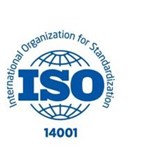An all-encompassing environmental strategy
Our Enviro 365 framework puts environmental management as a core business value, alongside health and safety under our EHS365 programme. By taking a unified and consistent approach, shaped by best practice, we can balance environmental considerations while securing sustainable economic growth. The development of our Group strategy and brand on the environment helps us to come together and work more cohesively as a group, allowing us to effectively manage common issues and develop sustainable solutions.
Monitoring our progress is essential as we continue on this journey. We have an annual plan in place and report regularly on environmental performance parameters to our EHS Governance Committee.
We continue to adapt our operations to provide customers with sustainable, efficient port services, helping meet the needs of the future, and investing in ways to help us get there.
Future Proofed
We are investing in ports for the future that will help our customers navigate the changing waters. Our vision is to create sustainable working environments where people and businesses can flourish. This includes the redevelopment of brownfield sites, warehouses with the latest in light technology and controls and the creation of a Sustainable Supply Chain, that will guide buying habits and reduce the environmental impact of our supply chain. We are engaging in dialogue about future fuels and are keen to continue the transition to a low-carbon future.
Monitored and Targeted
Our resource consumption, and associated emissions, are closely monitored across the business. By understanding where we are consuming, we can ensure that we target our efforts appropriately. In addition to monitoring our consumption, we also track environmental incidents and near misses across the business looking for opportunities to learn lessons and prevent reoccurrence. We have an annual plan in place which has a range of actions and targets for the year across a broad cross-section of environmental subjects such as air quality, climate change, pollution prevention and biodiversity. Where appropriate we work with specialists to help us develop our understanding and approach, such as the recent work on port air quality where we examined our emissions sources across our sites and identified opportunities to take forward.
Climate change
We have adopted a Group Climate Change Policy and are forming a Climate Change Steering Group, containing leaders from across the business to drive progress in the areas of climate change adaptation and mitigation.
In response to an invitation from Defra to participate in the 4th round of Climate Change Adaptation Reporting for the Ports of Liverpool and Sheerness, we submitted a Climate Change Adaptation Report to Defra for these ports in December 2024. The report can be downloaded HERE
Conservation
We have a Group standard on biodiversity and conservation which defines site responsibilities to ensure the protection of species that require it, manage invasive non-native species accordingly and to be aware of natural land designations on our near our sites. We work closely with sites to embed knowledge of responsibilities, including the provision of guidance on specific species that need protecting or removing, as well as limitations on activities that come with a designation.
As well as conservation of biodiversity on our sites, we also encourage sites to look at ways to enhance natural assets, improve habitats and build in natural considerations when developing. This could be through a partnership with a wildlife and conservation organisation.
Marine environment
Our Group Marine Environmental Department develops and oversees the delivery of good environmental practice in relation to marine activities, ensuring local Marine Teams can meet their statutory responsibilities and comply with relevant marine environmental legislation.
Our marine team is progressive and proactive in their approach to statutory marine environmental obligations to identify innovative, cost-effective initiatives that deliver environmental improvements. For example, coordinating beneficial re-use projects which facilitate engagement with local stakeholders to discuss and deliver sustainable solutions for the disposal of dredged material. Find our more here.

